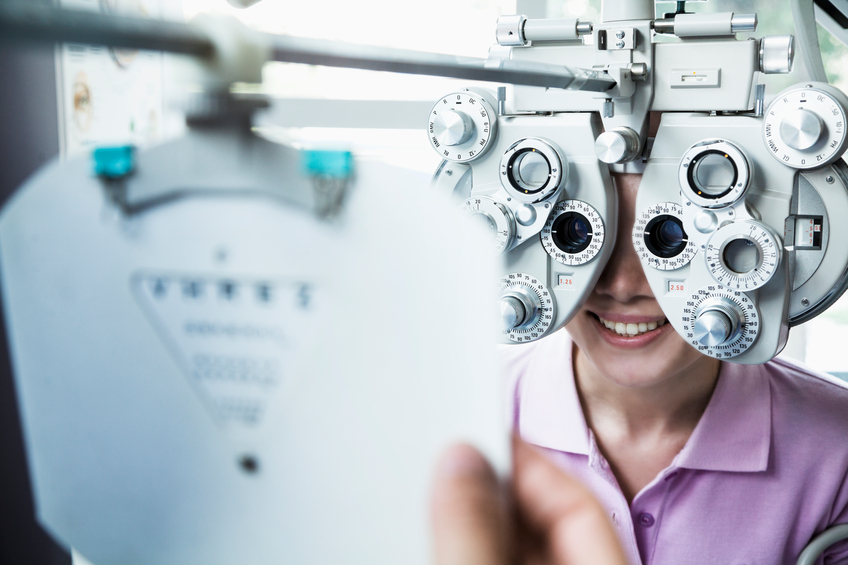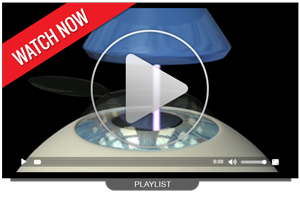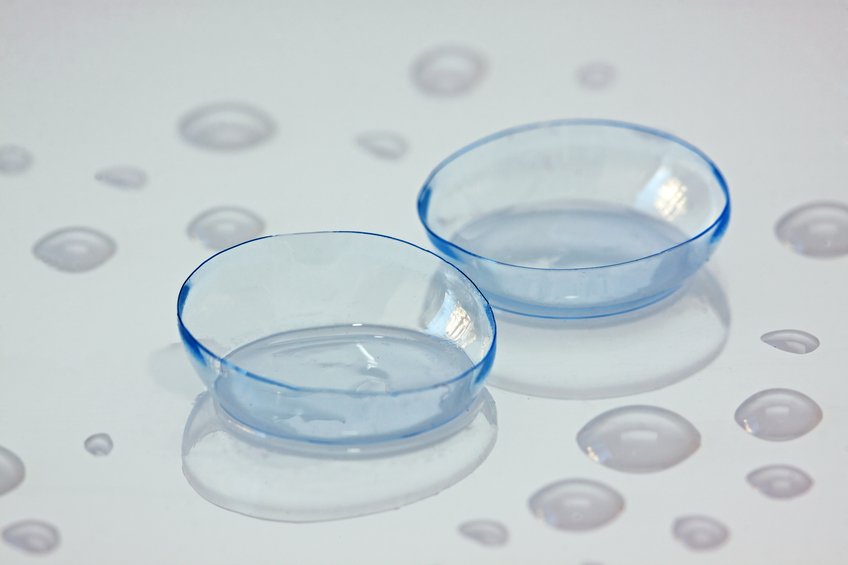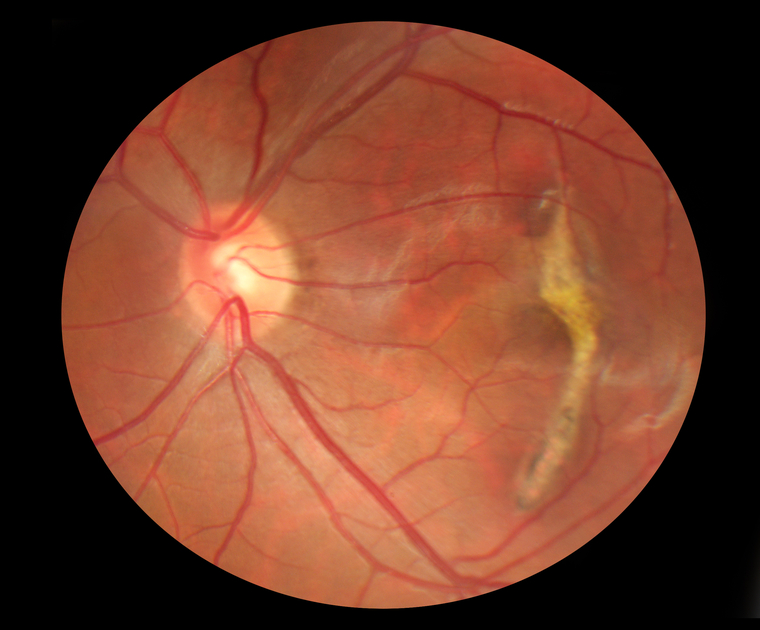Featured Monthly Video
Quick Links
Our Services
As a fully licensed and equipped optometric practice, Advanced Eye Care offers a complete range of eye care services to all our patients.
Whether the eye care issue involves correcting refractive errors with eyeglass or contact lenses, or helping a student find amazing frames, or diagnosing/treating eye conditions and diseases, our experienced team will identify and implement the best eye care solutions for you.
Eye Health Evaluation
With our years of experience in diagnosing and treating typical vision disorders such as nearsightedness, farsightedness, amblyopia, presbyopia, cataracts, macular degeneration and diabetic retinopathy, Nathan Bolen, OD, and Andrea Eigenberg, OD, and Michaela Sasse, OD and their team are equipped to provide appropriate therapeutic medical eye care.
At the same time, the Advanced Eye Care team offers a wide array of high quality eye care products at reasonable prices. Our patients never pay too much for the best quality in eyeglasses, contact lenses, sunglasses, progressive and bifocal lenses, and outstanding service.
Treatment of Eye Disease
If you are diagnosed with an eye disease, you want the best treatment available to get your eyes healthy again. At Advanced Eye Care, we stay current with best treatment practices. Based on your diagnosis, we may recommend a wide variety of approaches, including improved nutrition, prescription medicines, therapy and vision exercises, or medical procedures.
Good Eyecare Begins With A Yearly Eye Exam!
Although many do not realize it, the best way to protect your vision is with a yearly eye checkup. Even a basic eye exam can instantly detect many health-threatening conditions, such as tumors, vascular irregularities, and diabetes-related injury to the retina. At Advanced Eye Care, that basic checkup is brief and painless.
Good eye health is the foundation of good vision. We carefully inspect for and manage a number of health concerns including red eyes, glaucoma, macular degeneration, cataracts, lid infection, dry eye syndrome, eye allergies, and diabetes complications.
While some conditions are short term and require a brief course of treatment, others like glaucoma progress slowly and initially go unnoticed by the patient. If you have a risk of glaucoma, special testing is required to make the diagnosis and manage the treatment. When detected early, glaucoma can usually be managed with eye drops.
Read more about glaucoma, cataracts, dry eye, and other conditions in Patient Education.
Good eye health and clear eyesight does not guarantee high level visual performance. In addition to evaluating the health of your eyes, we include tests to evaluate the visual skills needed in the classroom and at work. Faulty visual skills cause symptoms of strain and headaches and reduce your productivity.
When we evaluate the visual skills we test focusing accuracy, visual speed, endurance, eye balance and alignment, depth perception, and visual efficiency. If we only looked at eye health and eyesight many visual skills deficits would go undetected.
In today’s society eye strain and performance problems when on a computer is one of the more common conditions resulting from poor visual skills. Treatment of computer symtpoms often requires special glasses, eye drops, and vision therapy.
For children our examination is unique and unlike an exam for an adult. Drs. Nathan Bolen, OD, and Andrea Eigenberg, OD, and Michaela Sasse, OD have extensive experience with chidren's vision and perform special tests to investigate how well your child uses their vision in the classroom. The section on vision therapy discussed vision and learning problems in greater detail.
An excellent examination and prescription are of little value if the lenses are not accurate, made of first quality material, and designed especially for you. Our skilled opticians are knowledgeable of all the new lens designs. They will take the time to understand your visual needs in order to recommend the lens type that will work best for you and help you select a durable, yet fashionable frame. A more complete discussion of spectacle lenses and frames can be found in the Products section.
Have you been told you you have astigmatism or need bifocals and can't wear contact lenses? We now offer disposable lenses for astigmatism and bifocals in addition to many other types of contacts. A more complete discussion of contact lenses can be found in the Products section.
Advanced Eye Care participates in the See to Learn program which is designed to detect vision problems before children enter school. As part of the See To Learn program free vision assessments are offered to three year olds. By detecting vision problems early treatment can be more successful. Amblyopia ( lazy eye), and strabismus several of the vision condition that can be best treated if detected early. Delays in visual development also need to be addressed before school.
Some visual conditions cannot be treated adequately with just glasses, contact lenses and/or patching, and are best resolved through a program of Vision Therapy.
What is Vision Therapy?
Vision Therapy is an individualized, supervised, treatment program designed to correct visual-motor and/or perceptual-cognitive deficiencies. Vision Therapy sessions include procedures designed to enhance the brain's ability to control:
- eye alignment
- eye teaming
- eye focusing abilities
- eye movements
- visual processing
Visual-motor skills and endurance are developed through the use of specialized computer and optical devices, including therapeutic lenses, prisms, and filters. During the final stages of therapy, the patient's newly acquired visual skills are reinforced and made automatic through repetition and by integration with motor and cognitive skills.
Who Can Benefit From Vision Therapy?
Patients of all ages can benefit from vision therapy. The nature of the therapy program varies with the condition treated. For example, a three-year-old child with amblyopia, or "lazy eye", may simply have the better eye patched for a short period of time. An eight-year-old child with strabismus, or "crossed eye", may require therapy for a period of a year. A thirty-year-old computer programmer may require three to six months to solve a visual problem that causes significant eye strain.
Children and adults with visual challenges such as the following are often benefitted by vision therapy.
- Learning-related Vision Problems
Vision Therapy can help those individuals who lack the necessary visual skills for effective reading, writing, and learning (i.e., eye movement and focusing skills, convergence, eye-hand activity, visual memory skills, etc.).
To learn more about vision-related learning problems, visit any of these web pages on reading, ADD/ADHD, tracking or convergence insufficiency
- Poor Binocular Coordination
Vision Therapy helps individuals develop normal coordination and teamwork of the two eyes (binocular vision). When the two eyes fail to work together as an effective team, performance in many areas can suffer (reading, sports, depth perception, eye contact, etc.).
To learn more about binocular vision, visit these web pages on 3D vision and depth perception, convergence insufficiency or The Framing Game.
- Strabismus and Amblyopia
Vision Therapy programs offer much higher cure rates for turned eyes and/or lazy eye when compared to eye surgery, glasses, and/or patching, without therapy. The earlier the patient receives Vision Therapy the better, however, our office has successfully treated patients well past 21 years of age.
To learn more about crossed eyes or lazy eye, visit the many web pages of strabismus.org, children-special-needs.org or lazyeye.org.
Find out about eye muscle surgery as a treatment option for crossed eyes and lazy eye.
- Stress-induced Visual Difficulties
21st century lifestyles demand more from our vision than ever before. Children and adults in our technological society constantly use their near vision at work and at home. C.V.S. (Computer Vision Syndrome) is one of the fastest growing health concerns in the workplace today. Environmental stresses on the visual system (including excessive computer use or close work) can induce eyestrain, headaches, and/or visual difficulties which can be effectively treated with corrective lenses and/or Vision Therapy.
- Visual Rehabilitation for Special Populations
Vision can be compromised as a result of neurological disorders or trauma to the nervous system (such as traumatic brain injuries, stroke, whiplash, developmental delays, cerebral palsy, multiple sclerosis, etc.). Vision Therapy can effectively treat the visual consequences of trauma (including double vision).
To learn more about brain injuries and vision, visit braininjuries.org.
- Sports Vision Improvement
Strong visual skills are critical to sports success. Not much happens in sports until your eyes instruct your hands and body what to do! Accurate vision and athletic visual skills can be measured, developed, and enhanced through Vision Therapy. We measure and successfully improve eye-hand coordination, visual reaction time, peripheral awareness, eye teaming, focusing, tracking, and visualization skills (to mention just a few).
Vision Therapy can be the answer to many visual problems. Don't hesitate to contact us with your questions. To read definitions for Vision Therapy by outside sources, visit children-special-needs.org.
Vision therapy is administered in our office under the guidance of your doctor. Sometimes a number of office visits are required over a period ranging from several weeks to several months. Usually the patient performs several exercises, then the doctor teaches the patient techniques to be practiced at home to reinforce the developing visual skills.
Vision therapy can effectively treat eye movement disorders, inefficient eye teaming, misaligned eyes, poorly developed vision, focusing problems, and other visual information processing disorders.
The standard examination equipment can not be used for all patients. Some patients have eye conditions that prevent them from seeing normal print and require special examination procedures. A Low Vision examination requires special equipment and expertise.
The most common cause of low vision is macular degeneration. Macular degeneration is a disease that disrupts the central fine acuity section of the eye. Without quality central vision these patients lose the ability to read small print, drive and recognize faces. For patients with advanced macular degeneration the standard spectacles are not adequate and magnification systems are necessary to help them read and work.
LASIK, a form of refractive surgery, is an popular option for vision correction, often eliminating the need to wear glasses or contact lenses. Simply put, LASIK reshapes the cornea with a laser.
Other surgical alternatives have become available. Among these is a technique called phakic IOL implantation which involves implanting a lens behind the cornea, but in front of the iris. With this new option, many of those who were too highly nearsighted for LASIK are now candidates for refractive surgery.
If you are interested in refractive surgery, please let us know. Refractive surgery is not to be taken lightly. Detailed testing is necessary to determine whether or not you are a good candidate for the surgery. If testing shows you to be a good candidate, we can help you choose the refractive surgeon who is most appropriate for your case. In addition, we provide post-operative care for refractive surgery.
Corneal Refractive Therapy (CRT) is a great advancement in refractive therapy options. CRT allows you to see clearly during the day without glasses or contact lenses. Specially designed therapeutic lenses gently reshape the front surface of your eye while you sleep.
Imagine great vision all day without contacts, glasses, or surgery. No more problems from dust, allergies, or dryness. CRT has also been shown to slow the progression of nearsightedness in children and teenagers.
Previously, if you were nearsighted and wanted to see clearly during the day, your options were glasses, contacts, or laser surgery. CRT offers a non-surgical solution. No more worry about broken frames or torn contact lenses. Additionally, while LASIK is usually recommended only for those over 18 years of age, CRT is ideal for our younger patients who are active in sports and do not like the hassle of glasses or contacts.
For more information on Corneal Refractive Therapy, call today to schedule your FREE CRT consultation or visit Paragon at www.paragoncrt.com.
In our continued efforts to bring the most advanced technology available to our patients, Nathan Bolen, OD, and Andrea Eigenberg, OD, and Michaela Sasse, OD are proud to announce the inclusion of the Clarus Ultra-Widefield Retinal Exam as an integral part of your eye exam.
Many eye problems can develop without warning and progress with no symptoms. Early on, you might not notice any change in your vision. However, diseases such as macular degeneration, glaucoma, retinal tears or detachments, as well as other health problems such as diabetes and high blood pressure, can often be detected with a thorough exam of the retina. The retina is the part of your eye that catches the image of what you are looking at, similar to the film in a camera.
A Clarus Ultra-Widefield Retinal Exam provides:
- A scan to confirm a healthy eye or detect the presence of disease.
- An overview or map of the retina, giving your eye doctor a more detailed view than he can achieve by other means.
- The opportunity for you to view and discuss the Clarus Ultra-Widefield images of your eye with your doctor at the time of your exam.
- A permanent record for your medical file, enabling your optometrist to make important comparisons if potential problems show themselves at a future examination.










